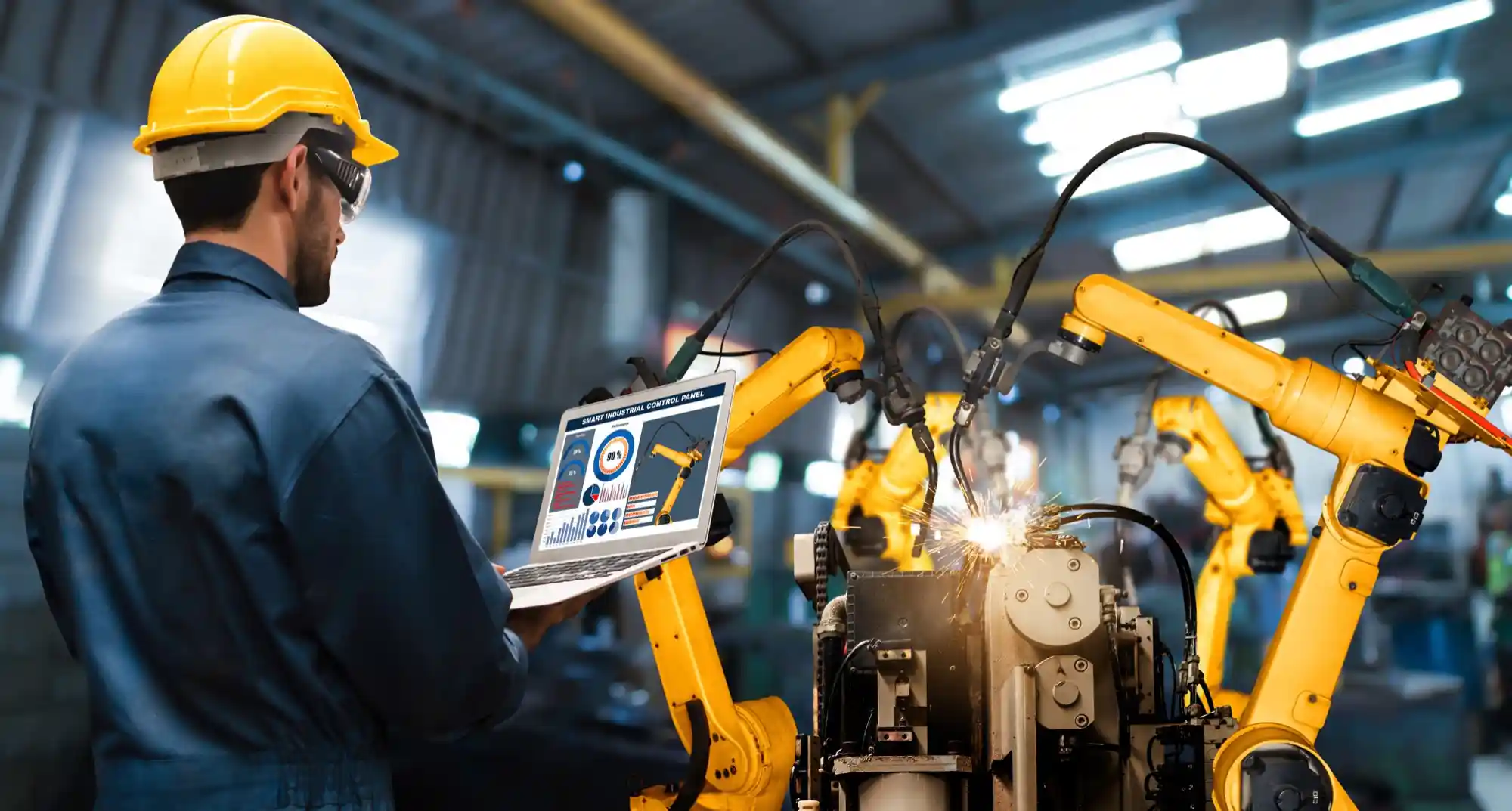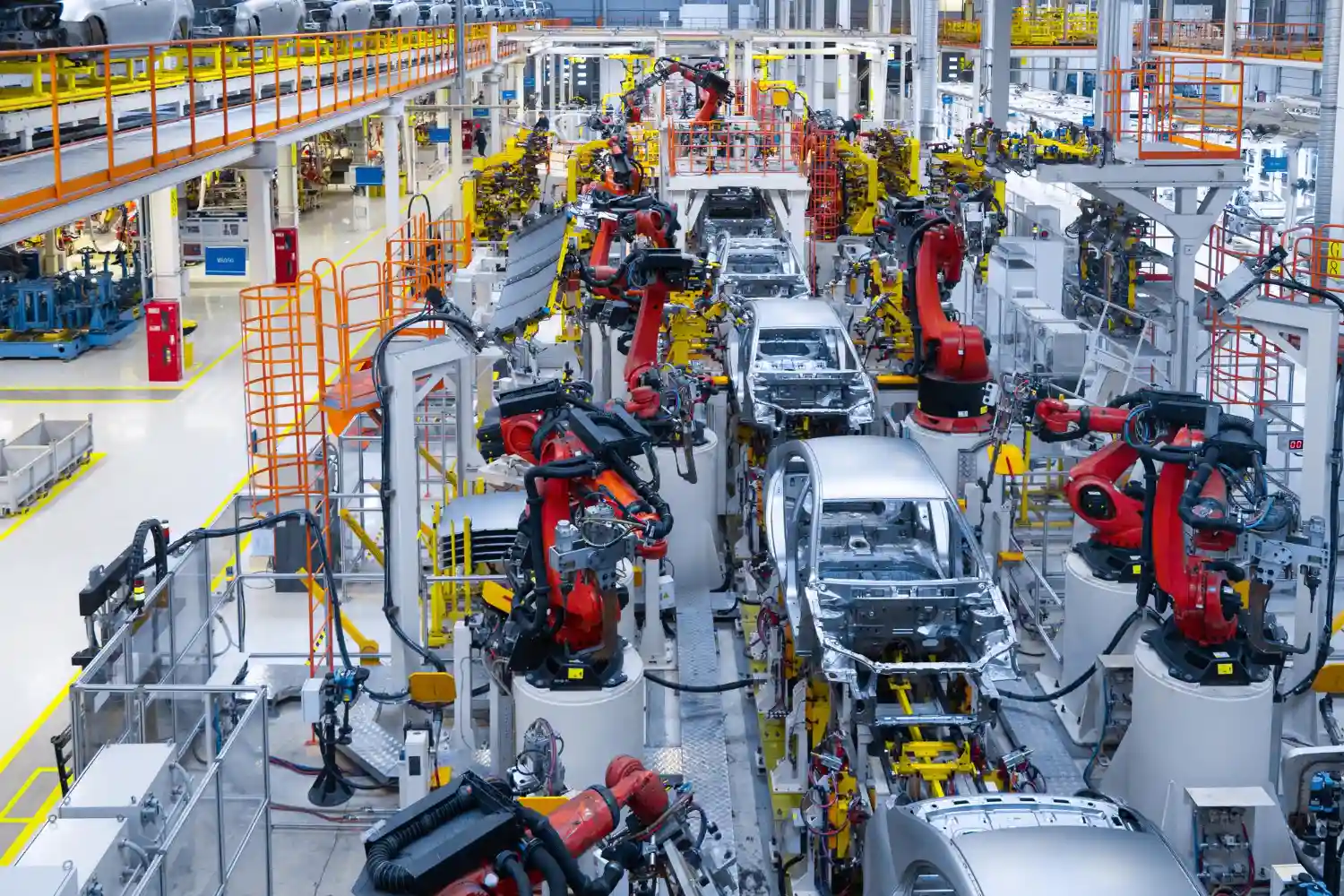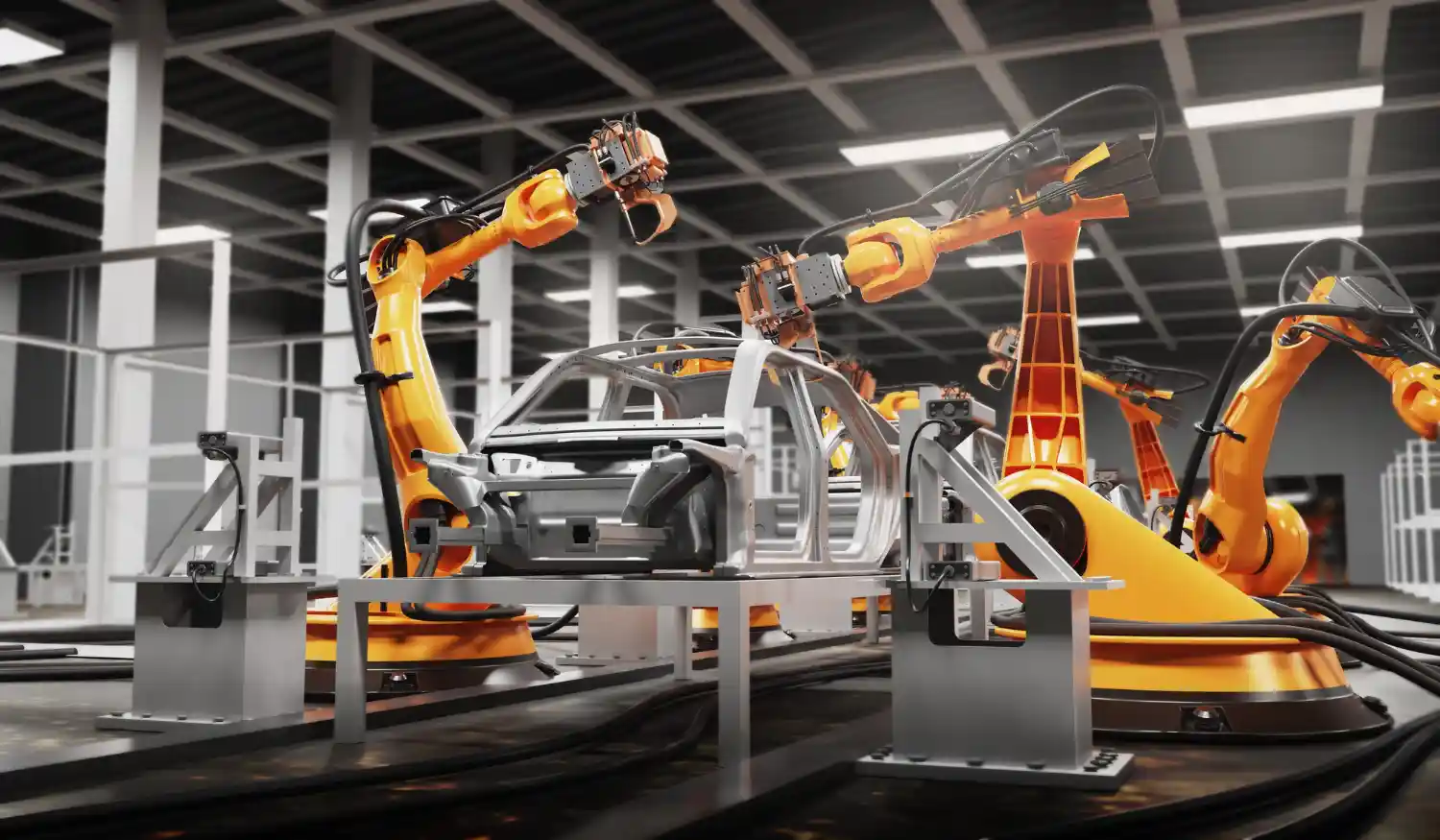
Master Linque Automation is the leading company for automated manufacturing in Chennai, Hosur, Bangalore, Coimbatore, and Trichy. It provides top-rated industrial turnkey automation solutions, and is the best choice for robotic automation in Chennai. The automotive industry is currently experiencing a transformation due to digitization, automation, and new business models. This transformation is marked by four key trends: the rise of diverse mobility options, the emergence of autonomous driving capabilities, a shift towards electric vehicles, and increased connectivity across vehicles and transportation systems.
Automation in the automotive industry refers to the use of technology to perform tasks and processes that were previously done by humans. This can include things like assembly line automation, self-driving cars, and advanced driver assistance systems (ADAS). Automation can increase efficiency, reduce costs, and improve safety in the automotive industry. Master Linque Automation is the Top Automated Manufacturing company in Chennai, Hosur, Bangalore, Coimbatore, Trichy. However, it can also lead to job loss and other societal impacts, which need to be carefully considered and managed.
The automotive industry has been a major investor in Special Purpose Machine (SPM) manufacturing in Chennai, where the Best Automated Manufacturing company is located. The industry's consistent adoption of industrial robots has spurred the advancement of robotic applications. The utilisation of automated robots has provided numerous benefits to the automotive sector.
What is the Automotive Industry?
The automotive industry is a sector that involves the design, development, manufacture, marketing, and sale of motor vehicles, which include cars, trucks, buses, and motorcycles. The industry also encompasses a wide range of components and systems that are required for the production of vehicles, including engines, transmissions, and electrical and electronic systems. The automotive industry is a critical part of many economies and plays a major role in the employment, innovation, and trade of many countries around the world. It is also constantly evolving, with new technologies and trends emerging all the time, such as electric and self-driving vehicles.
What are the key segments in the Automotive industry?

In this blog, we will outline the primary segments within the automotive industry, with a particular focus on how they apply to Master Linque Automation, the top automated manufacturing company in Chennai, Hosur, Bangalore, Coimbatore, and Trichy. These segments are
OEM (Original Equipment Manufacturers) - These are companies that produce vehicles and sell them to dealerships, which then sell the vehicles to consumers.
Aftermarket - This segment of the industry involves the production and sale of replacement parts, accessories, and services for vehicles, including maintenance and repair.
Components - This segment encompasses the manufacture of a wide range of components and systems that are used in the production of vehicles, including engines, transmissions, tires, and electrical and electronic systems.
Mobility services - This segment includes ride-hailing and car-sharing services, as well as new technologies such as connected and autonomous vehicles.
Retail - This segment encompasses the sale of vehicles to consumers through dealerships, as well as the financing and insurance of those vehicles.
Each of these segments plays an important role in the overall automotive industry, and they are all interconnected, with developments in one segment often having an impact on the others
What is the Automotive Industry value chain?
The value chain of the automotive industry encompasses all the stages of production and distribution that are necessary to create a motor vehicle, starting from raw materials and ending with the final product. With regard to robotic automation in Chennai, the value chain of the automotive industry generally comprises the following stages:
Research and Development (R&D) - This stage involves the conceptualization and development of new vehicle models and technologies.
Component Manufacturing - This stage involves the production of individual components, such as engines, transmissions, and electrical and electronic systems, that are used in the production of vehicles.
Assembly - This stage involves the assembly of the various components and systems into a complete vehicle.
Marketing and Sales - This stage involves the promotion and sale of vehicles to dealerships and consumers, including the financing and insurance of vehicles.
After-sales Services - This stage involves the provision of maintenance, repair, and replacement services for vehicles, as well as the production and sale of replacement parts and accessories.
Each stage in the value chain adds value to the product, and companies in the automotive industry often specialise in one or several stages of the value chain. For example, a company may specialise in the production of engines, while another may specialise in the assembly of vehicles. Effective coordination and collaboration among the different stages of the value chain is critical to the success of the automotive industry as a whole.
Competitive Advantages in automotive industry

Brand reputation - A strong brand reputation can be a significant advantage in the automotive industry, as consumers often have strong loyalties to certain brands and are more likely to purchase vehicles from companies with a good reputation.
Technological expertise - Companies with a strong focus on innovation and technology can gain a competitive advantage by developing new, cutting-edge technologies and features that set them apart from their competitors.
Cost efficiency - Companies that are able to produce vehicles at a lower cost than their competitors can have a significant advantage, as they can offer their products at a lower price while still maintaining profitability.
Supply chain management - Effective supply chain management can give companies a competitive advantage by enabling them to source raw materials and components at a lower cost, improve delivery times, and reduce waste.
Global reach - Companies with a strong global presence can have a significant advantage, as they can tap into new markets and reach a wider customer base.
Diversification - Companies that offer a range of products and services, such as car-sharing and ride-hailing services, can have a competitive advantage by providing customers with a one-stop solution for all their transportation needs.
Strategic partnerships - Companies that form strategic partnerships with other firms, such as suppliers, distributors, and technology companies, can gain a competitive advantage by accessing new technologies, markets, and expertise.
By focusing on these competitive advantages, Master Linque Automation is the Top Automated Manufacturing company in Chennai, Hosur, Bangalore, Coimbatore, Trichy. Companies in the automotive industry can strive to achieve long-term success and growth in a highly competitive and constantly evolving market.
"The Integration of AI, Machine Learning, and Autonomous Vehicles is Transforming the Automotive Industry"
Exciting advancements in Artificial Intelligence are revolutionising the automotive industry in fascinating ways. Predictive maintenance, made possible by AI, helps anticipate potential issues before they arise, ensuring a seamless and efficient driving experience. The incorporation of machine learning algorithms is enabling vehicles to drive themselves, further advancing the development of autonomous vehicles. AI is also being utilised to enhance the customer experience, making driving more convenient and enjoyable.
The Internet of Things (IoT) is poised to play a significant role in the future of the automotive industry, simplifying our lives and making autonomous vehicles safer and easier to use. The future of the automotive industry is bright, with AI leading the way in shaping the next generation of vehicles.
In conclusion, AI is already having a profound impact on the automotive industry, and we can expect great things from it in the future. The possibilities are truly exciting.



